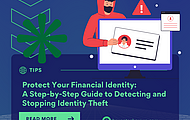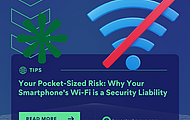Fraudulent loans against SMBs are up 258 this year after a 125 increase in 2019

COVID 19 has created an unusually rich number of targets for a group of identity thefts gangs operating out of Florida and Georgia who use fairly low-tech processes to take advantage of government assistance, both Federal and State, on the behalf of the SMB, redirect payment to themselves and the SMB is none the wiser until it comes time to pay that loan appears.
These hard economic times have created the perfect gateway for identity thieves to up their cybercrimes game by targeting small businesses across the country using the loan assistance programs and unemployment benefits.
Most consumers are likely aware of the identity theft scheme that has been around for a long time and are able to identify it whenever they notice unusual financial activity. These discrepancies, if not caught on time, can damage a person’s financial standing permanently. But what most people are unaware of is that the same crime can be far more costly and damaging when thieves target small businesses. Unfortunately, many entrepreneurs are oblivious to it and just don’t know what to watch out for.
In addition to this, with so many businesses closing their doors or sitting dormant during this global pandemic, organized fraud rings have a bigger pool of targets to choose from.
Short HIlls, NJ-based Dun & Bradstreet (NYSE:DNB) is a data analytic company that plays an important role for the credit bureau as they are the ones they typically go to whenever a business owner wants to open a new line of credit. NYSE:DNB provides history and can gauge the business’s trustworthiness.
In 2019, Dun & Bradstreet noticed an abrupt increase of more than 100 percent in business identity theft. For 2020, they estimate an overall spike of 258 percent which is very alarming. They have also received over 4,700 tips and leads of where these frauds are most likely being committed.
“The ferocity of cybercriminals to take advantage of COVID-19 uncertainties by preying on small businesses is very disturbing,” said Andre LaMarca, leader of global high-risk and fraud team at Dun & Bradstreet.
These gangs would usually start by digging information about the business such as ownership records at the Secretary of State website, then from there, they’ll move on to acquiring more personal and sensitive information such as their Social Security and Tax ID numbers from the dark web as well as other online sources.
To be able to bypass security verifications over the affected firms, they hire low-wage image creators online to help create and/or modify official documents that will help the process seem more legit. These include tax records and utility bills. Once these documents are completed, then they’ll proceed to file the false documents with the Secretary of State’s office in the name of the business owner but with a mailing address that they can manage and control. They’ll go as far as creating domains, email addresses, and submitting the listings to business search websites such as Yellowpages to cover up their scheme.
Lastly, after all of the bogus profiles and paperwork have been submitted and approved by Dun & Bradstreet, the gang will wait weeks even months before applying for a large credit line in retail stores such as Home Depot, Office Depot, and Staples. Then they’ll go on a shopping spree, it’s very unfortunate that most of the time the victim will find out once the debt collector companies start calling.
“One’s personal credit is nothing compared to the ability of corporations to borrow money,” said Alex Holden, founder of Hold Security Firm located in Milwaukee, Wisc. He also stated that over the past few months there seems to be a shift of energy into not just targeting these inactive or dormant businesses but also to get unemployment payments and SBA loans in the name of these companies and employees.
‹ Back







